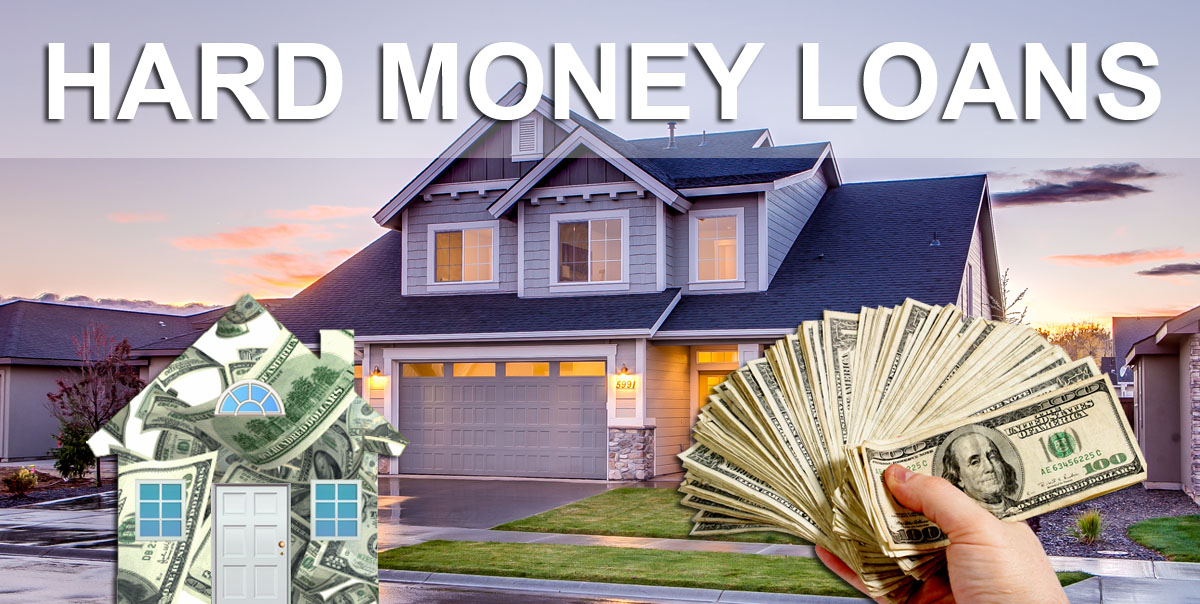Owner-occupied hard money loans are a special type of real estate loan secured by property that you live in (your primary residence), but they come from private or non-traditional lenders—not banks or government-backed institutions.
These loans are different from typical hard money loans (which are mostly for investment properties) because they must follow more consumer protection laws due to the residential, owner-occupied nature of the property.
🔍 What Is a Hard Money Loan?
A hard money loan is a short-term, asset-based loan where the property itself is the main collateral. These loans are often used when:
-
Credit is poor or unverifiable
-
You need fast financing
-
Traditional lenders won’t approve the deal
🏡 What Makes Owner-Occupied Hard Money Loans Different?
Because you’re living in the property, federal and state laws (like Dodd-Frank and Truth in Lending Act) require additional borrower protections:
| Feature | Owner-Occupied Hard Money | Investment Hard Money |
|---|---|---|
| Regulated | Yes (strictly) | Loosely |
| Income Verification | Required | Often skipped |
| Ability to Repay Rules | Enforced | Rarely required |
| Loan Purpose | Personal residence | Investment/business use |
| Higher Legal Scrutiny | ✅ Yes | ❌ No |
💡 When Are Owner-Occupied Hard Money Loans Used?
These loans are rare but can be helpful in situations like:
-
You’re self-employed or have irregular income.
-
You’re in foreclosure and need a bridge loan.
-
You need to buy and renovate a fixer-upper you plan to live in.
-
You’ve been denied by traditional lenders due to credit or other issues.
📋 Typical Loan Terms
-
Interest Rate: 8%–12%+
-
Term: 6 months to 5 years
-
LTV (Loan-to-Value): 60%–75%
-
Down Payment: Often 25%+
-
Closing Time: As fast as 5–10 days
⚠️ Risks and Considerations
-
High interest and fees.
-
Short repayment periods.
-
Foreclosure risk if you can’t refinance or repay on time.
-
Must comply with Ability-to-Repay (ATR) laws and may require income docs, tax returns, etc.
✅ Tips for Finding a Good Lender
-
Look for licensed hard money lenders who understand consumer loan compliance.
-
Ask about prepayment penalties and balloon payments.
-
Make sure you have a clear exit strategy (refinance, sell, etc.).
-
Work with a real estate attorney to review the loan.
🏠 What Is a Bridge Loan?
A bridge loan provides temporary financing that helps you:
-
Buy a new property while waiting to sell your existing one
-
Access equity in your current home before it’s sold
-
Cover gaps in funding for time-sensitive real estate deals
It’s often secured by your current home or the home you’re buying.
💡 Example Scenario
You want to buy a new house but haven’t sold your current one yet.
-
Your current home has $200,000 in equity.
-
You need $100,000 for the down payment on the new home.
-
A bridge loan gives you access to that equity now.
-
Once your old home sells, you pay off the bridge loan.
📋 Key Features of Bridge Loans
| Feature | Description |
|---|---|
| Term | Usually 6–12 months |
| Loan Size | Often up to 80% of your home’s value |
| Interest Rate | Typically 8%–12% (higher than traditional mortgages) |
| Repayment | Can be interest-only or deferred until home sells |
| Collateral | Usually your current home |
✅ Pros
-
Fast access to equity
-
Helps you avoid contingent offers
-
Lets you act quickly in competitive markets
-
May allow no monthly payments until sale closes
⚠️ Cons
-
Higher interest rates and fees
-
Short repayment window
-
Risk of owning two homes at once
-
Could require good credit and significant equity
🏡 Who Uses Bridge Loans?
-
Homebuyers moving before selling their old house
-
Real estate investors needing temporary capital
-
Sellers buying a new home without waiting for a sale to close
Alternatives to a Bridge Loan
-
Home equity line of credit (HELOC) – lower rates, but harder to get if the home is listed for sale
-
Home equity loan – similar, but installment-based
-
Personal loan – limited amount, not tied to home
-
Borrowing from retirement or investments – last resort
Loan-to-Value (LTV) is a ratio that compares the amount of a loan to the value of the property securing it. It’s a key number that lenders use to assess risk in real estate financing.
📊 Loan-to-Value (LTV) Formula
LTV=(Loan AmountAppraised Property Value)×100\text{LTV} = \left( \frac{\text{Loan Amount}}{\text{Appraised Property Value}} \right) \times 100
✅ Example:
-
Home value: $400,000
-
Loan amount: $300,000
LTV=(300,000400,000)×100=75%\text{LTV} = \left( \frac{300,000}{400,000} \right) \times 100 = 75\%
This means you’re borrowing 75% of the home’s value and putting down 25%.
🏦 Why LTV Matters to Lenders
| LTV % | Risk Level | Notes |
|---|---|---|
| 80% or lower | Low risk | Qualifies for best rates |
| 81–90% | Moderate risk | May require mortgage insurance |
| 91–100%+ | High risk | Often not approved without special programs (e.g., FHA, VA) |
Higher LTV = More risk for the lender
Lower LTV = Better terms for the borrower
💰 Impact of LTV on You
| Area | Higher LTV | Lower LTV |
|---|---|---|
| Down Payment | Smaller | Larger |
| Interest Rate | Higher | Lower |
| Loan Approval | Harder | Easier |
| Private Mortgage Insurance (PMI) | Usually required >80% | Not required ≤80% |
🔁 Common LTV Limits by Loan Type
| Loan Type | Max LTV |
|---|---|
| Conventional | 80% (97% with PMI) |
| FHA | 96.5% |
| VA | 100% |
| USDA | 100% |
| Hard Money | 60–75% |
| Bridge Loans | Typically 65–80% |
🛠️ How to Lower Your LTV
-
Make a bigger down payment
-
Buy a less expensive property
-
Wait until home prices rise
-
Pay down loan principal
Owner Occupant Investment Property Loans
If you live in the Phoenix Valley and would like to get started with growing your real estate portfolio Brad Loans can help! Our lending service makes it easy for investors to finance new properties as owner occupants. We can work with bad credit, lend faster, and understand the real estate investment industry with decades of local knowledge in investing, fix and flip, and much more. Read about our loan programs by clicking here.
Call Today To Start Your Owner Occupant Loan 602-999-9499
[/vc_column_text][/vc_column][/vc_row]





